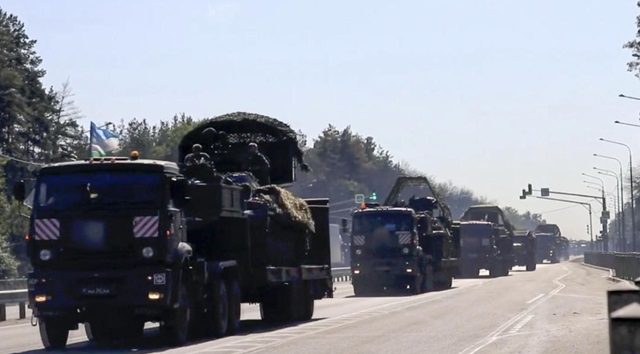BTN News: Ukraine’s military operation in the Russian region of Kursk marks a significant turning point in the ongoing conflict. Despite a slowdown in territorial advances, Ukrainian forces have maintained control over more than 1,300 square kilometers of Russian territory, equivalent to half the size of Luxembourg. This unexpected offensive has not only disrupted Russia’s military strategy but also given President Volodymyr Zelensky a renewed platform to galvanize international support. As Ukraine’s gains continue to reshape the battlefield and the diplomatic landscape, the operation in Kursk has emerged as a crucial element in Kyiv’s broader strategy for victory.
Ukraine Takes the Initiative in Kursk
After a month of intense fighting, Ukraine’s offensive in the Kursk region has yielded notable, if limited, territorial gains. Ukrainian forces have secured control over more than 100 localities and inflicted significant casualties on Russian troops, with over 6,000 Russian soldiers reported dead or wounded. President Zelensky, speaking at a recent defense meeting at the U.S. Ramstein Air Base in Germany, highlighted these achievements as a testament to Ukraine’s resilience and strategic foresight.
Diplomatic Gains Amid Military Pressure
While the territorial progress in Kursk has slowed in the past week, the operation has generated substantial diplomatic momentum for Ukraine. By compelling Russia to relocate forces from other critical areas within Ukraine, Kyiv has not only altered the dynamics on the battlefield but also enhanced its standing with international allies. This shift is crucial for President Zelensky, who is keen to use Ukraine’s unexpected successes to persuade Western partners to increase their military and economic support.
Ukraine’s Offensive Shifts Russia’s Focus
The Kursk operation has forced Russia to rethink its strategy. As Ukrainian forces advance, Moscow has been compelled to redeploy tens of thousands of troops away from other contested fronts, such as Pokrovsk and Toretsk in Donetsk. This has weakened Russia’s position in those areas, allowing Ukrainian forces, including the ‘Azov’ Brigade, to launch successful counterattacks, further complicating Russia’s military objectives.
Rising Pressure on Russian Forces and Morale
Ukraine’s tactical maneuvers have also led to significant consequences for Russian morale. According to recent surveys by the Russian Public Opinion Research Center (VTsIOM), confidence in President Vladimir Putin has declined since Ukrainian troops crossed into Russian territory. The trust level dropped from over 80% before the Kursk incursion to approximately 75.5% in early September. Analysts caution that while this dip may not indicate a long-term trend, it highlights the challenges facing the Kremlin as it grapples with an emboldened Ukrainian offensive.
Potential Next Steps for Ukraine
As the situation in Kursk unfolds, experts suggest that Ukraine may be preparing for further strategic moves. With Russian forces stretched thinner due to redeployments, Kyiv could exploit this opportunity to launch additional offensives in other sectors. Meanwhile, Ukrainian forces in Kursk are effectively leveraging the natural terrain advantages, maintaining pressure on Russian positions, particularly around the Glushkovo district, where more than half of the Russian pontoon bridge unit has been destroyed.
Changing the Narrative of the Conflict
The operation in Kursk has already altered the narrative surrounding the war, both within Ukraine and internationally. Analysts from the Razumkov Center argue that the offensive has shifted global perceptions, countering months of growing pessimism and uncertainty about Ukraine’s prospects. As Zelensky continues to rally for international backing, the gains in Kursk may prove pivotal in convincing Western allies to overcome their hesitation to cross perceived “red lines” in support of Ukraine.
Broader Implications for the War Effort
The impact of Ukraine’s operation extends beyond the immediate conflict zone. By isolating Russian forces south of the Seim River in Glushkovo, Ukraine has created new vulnerabilities in Russia’s defenses. This move could force Moscow to commit additional resources to Kursk, potentially weakening its hold over other contested regions, such as Pokrovsk and Toretsk. As Oleksandr Kovalenko from the Informative Resistance Group notes, the benefits of Ukraine’s current positioning far outweigh any potential gains from redeploying these forces elsewhere.
Conclusion: A Strategic Turning Point?
Ukraine’s offensive in Kursk is not just a battle for territory; it represents a broader strategic maneuver designed to shift the momentum of the conflict in Kyiv’s favor. By forcing Russia to divert attention and resources, Ukraine has managed to challenge the narrative of an inevitable Russian victory. Whether this will lead to long-term shifts in the war remains uncertain, but for now, Ukraine has seized the initiative both on the battlefield and in the diplomatic arena.


